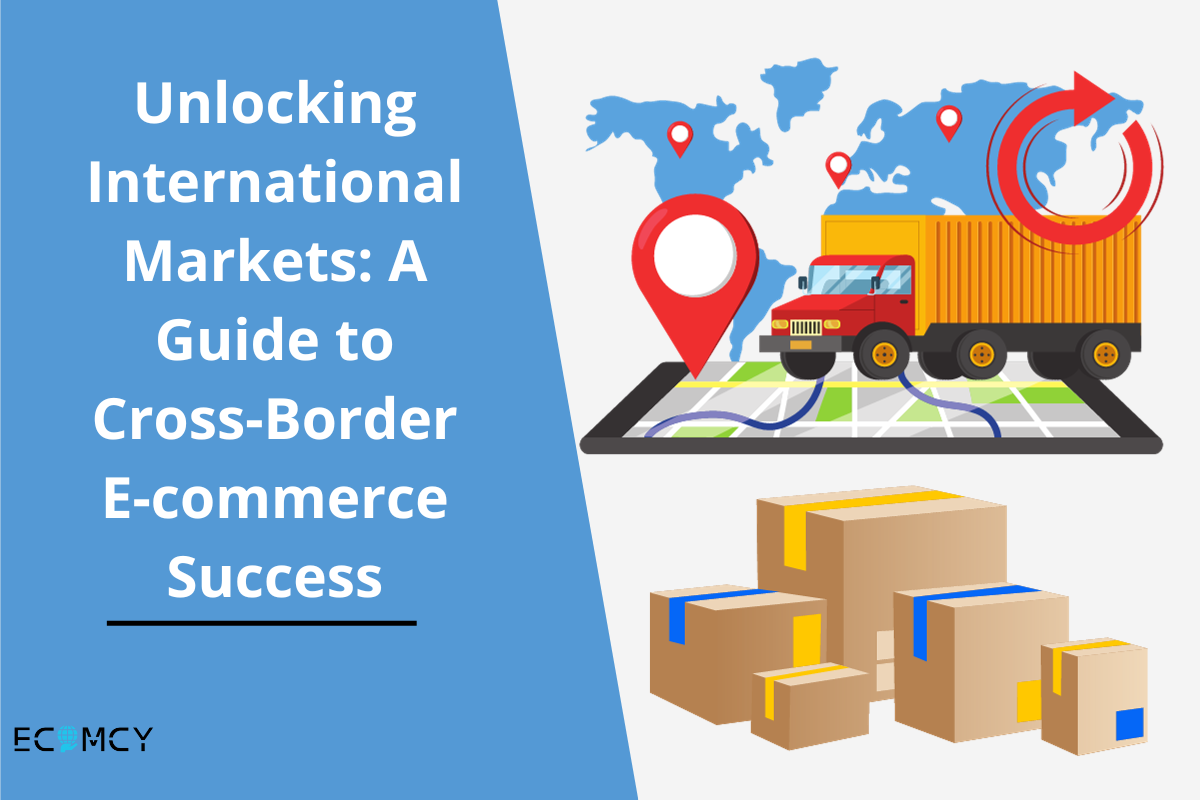
In today’s interconnected world, the opportunities for businesses are not limited by geographical boundaries. The rise of the internet and digital technologies has opened up new avenues for entrepreneurs to expand their businesses globally. One of the most promising avenues is cross-border e-commerce, where businesses can reach customers beyond their domestic borders and tap into international markets. In this article, we will explore the potential of cross-border e-commerce and provide insights on how businesses can successfully expand their operations internationally.
The Global E-commerce Landscape
E-commerce has experienced exponential growth, transforming the way people buy and sell goods and services. According to Statista, global e-commerce sales are projected to reach 4.9 trillion U.S. dollars in 2021, with no signs of slowing down. This tremendous growth presents a vast opportunity for businesses to expand internationally and cater to a global customer base.
Advantages of Cross-Border E-commerce
Expanded Customer Base
By embracing cross-border e-commerce, businesses can access a larger pool of potential customers, leading to increased sales and revenue. The global market offers diverse consumer preferences and demands, allowing businesses to tailor their products and services to meet the specific needs of different regions.
Increased Revenue Streams

Diversifying revenue streams across multiple countries can safeguard businesses from economic fluctuations in specific regions. If one market faces a downturn, other thriving markets can compensate for the losses, ensuring a more stable income.
Enhanced Brand Recognition
Expanding internationally can significantly enhance brand recognition. A global presence not only attracts more customers but also strengthens the brand’s reputation, making it more trustworthy and recognizable worldwide.
Access to Emerging Markets
Cross-border e-commerce enables businesses to tap into emerging markets where internet penetration and online shopping habits are growing rapidly. Getting a foothold in these markets early can provide a significant advantage as they continue to develop.
Cost-Effective Global Reach
Utilize digital marketing tools to precisely target international audiences within budget. Tailor social media, SEO, and online ads for diverse regions. Collaborate with digital marketing, like Ecomcy: experts for strategic, cost-effective campaigns, ensuring your business thrive in the global market.
Challenges and Solutions
While the potential benefits are vast, expanding internationally through cross-border e-commerce comes with its set of challenges. These challenges include language barriers, cultural differences, varying regulations, and logistical complexities. However, businesses can overcome these challenges through strategic planning and leveraging appropriate resources.
Market Research
Thorough market research is crucial to understanding the preferences, behaviors, and expectations of the target audience in different countries. Research helps in customizing products, pricing, and marketing strategies to align with the cultural and social nuances of the international market.
Localization
Localization involves adapting the content, language, and design of the website to suit the preferences of the target audience. Providing content in the local language and accepting payments in multiple currencies enhances user experience and fosters trust among international customers.
Compliance and Regulations
Every country has its regulations regarding e-commerce, taxation, and consumer protection. Businesses need to stay informed about these regulations and ensure compliance to avoid legal issues. Partnering with legal and financial experts in the target country can provide valuable guidance.
Logistics and Shipping

Efficient logistics and reliable shipping partners are essential for cross-border e-commerce success. Businesses must optimize their supply chain, choose reputable shipping providers, and offer transparent shipping options to customers. Timely and hassle-free deliveries can significantly enhance customer satisfaction.
Preparing for Global Expansion Through Cross-Border E-commerce
In the fast-paced world of e-commerce, expanding globally has become a crucial strategy for businesses aiming for long-term success.
1. Thorough Market Research
Understand the nuances of your target market. Conduct in-depth research to comprehend consumer behavior, preferences, and cultural differences. Recognize local trends and demands to tailor your products or services accordingly.
2. Localization of Content
Language is a powerful tool. Translate your website and marketing content accurately to the local language of your target audience. Additionally, adapt images, colors, and symbols to resonate with the local culture. Localization enhances user experience and builds trust.
3. Compliance and Regulations
Each country has its own set of regulations governing e-commerce, taxation, and consumer rights. Familiarize yourself with these laws and ensure your business operations align with them. Seek legal counsel if necessary to avoid legal complications.
4. Optimize for Mobile Devices
Mobile devices dominate internet usage worldwide. Ensure your website is responsive and optimized for various screen sizes. A seamless mobile experience can significantly boost your international sales.
5. Secure Payment Gateways

Establish secure and convenient payment gateways that support multiple currencies. Offer various payment options popular in your target market, ensuring a smooth checkout process for customers.
6. Reliable Logistics and Fulfillment
Partner with reliable international shipping and logistics companies. Efficient shipping, accurate tracking, and timely delivery are critical for customer satisfaction. Explore fulfillment centers in the target country for faster and cost-effective deliveries.
7. Exceptional Customer Support

Provide responsive customer support to address queries and concerns promptly. Consider offering multilingual customer service to cater to a diverse customer base. Excellent customer support enhances brand reputation and fosters customer loyalty.
8. Online Marketing Strategies
Implement tailored online marketing strategies for each market. Utilize social media, search engine optimization (SEO), and pay-per-click (PPC) advertising to reach your target audience. Engage influencers and collaborate with local brands for increased visibility.
9. Analyze and Adapt
Regularly analyze data and customer feedback. Monitor sales patterns, website traffic, and customer behavior. Use this information to make data-driven decisions and adapt your strategies to meet evolving market demands.
Conclusion
Expanding your business internationally through cross-border e-commerce is a strategic move that can lead to unparalleled growth and success. By understanding the global market, adapting to local preferences, and overcoming challenges through informed decision-making, businesses can harness the vast potential of international e-commerce. As technology continues to advance and consumer behaviors evolve, embracing cross-border e-commerce is not just an option; it’s a necessity for businesses looking to thrive in the competitive landscape of the digital age. So, gear up, do your research, and take your business beyond borders, because the world is your marketplace, waiting to be explored.



 Community
Community
